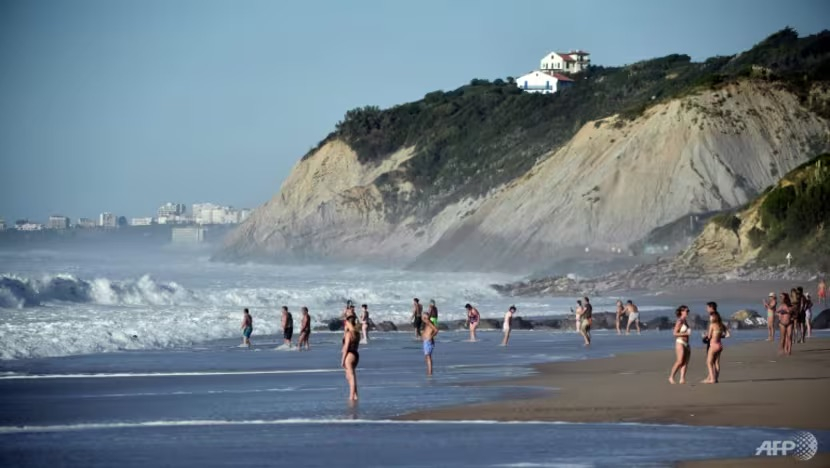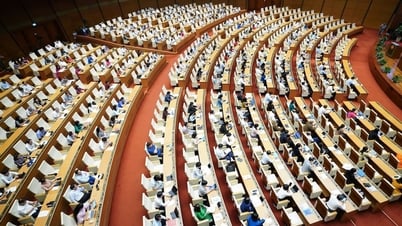The unusually warm weather in Europe comes after the EU's climate watchdog said earlier this month that global temperatures in the Northern Hemisphere were a record hot summer.
The French weather agency Meteo-France said the average September temperature in the country was around 21.5 degrees Celsius, about 3.5 degrees Celsius to 3.6 degrees Celsius higher than the 1991-2020 reference period.

The average temperature in France has exceeded the monthly norm for nearly two years in a row. Photo: AFP
The average temperature in France has consistently exceeded the monthly norm for nearly two years.
In neighboring Germany, weather agency DWD said this month was the hottest September since records began, nearly 4 degrees Celsius above the 1961-1990 baseline.
The Polish Weather Institute announced that September temperatures were 3.6 degrees Celsius above average and the hottest for the month since records began more than 100 years ago.
Austrian and Swiss weather agencies also recorded their hottest average September temperatures ever, with a study finding that glaciers in Switzerland have lost 10% of their volume in two years due to extreme warming.
The Spanish and Portuguese national weather institute has warned of unusually warm temperatures this weekend, with temperatures reaching 35C in parts of southern Spain on Friday.
Scientists say climate change caused by human activity is driving global temperatures higher, with the world about 1.2 degrees Celsius warmer than pre-industrial times.
The European Union's Copernicus Climate Change Service told AFP earlier this month that 2023 is likely to be the hottest year humanity has ever experienced.
Higher temperatures are likely because the El Nino weather phenomenon – which warms waters in the South Pacific and beyond – is just beginning.
Extreme weather events such as heat waves, droughts, wildfires and storms are occurring more frequently and intensely, causing greater damage to people and property.
World leaders will gather in Dubai from November 30 for UN climate talks aimed at limiting the worst impacts of climate change, including limiting warming to 1.5 degrees Celsius, the target of the landmark 2015 Paris Agreement.
Cutting planet-warming greenhouse gas emissions – particularly by phasing out the consumption of polluting gas, oil and coal – climate finance and boosting renewable energy capacity will be at the heart of the discussions.
“Until we reach carbon neutrality, heat records will be systematically broken week after week, month after month, year after year,” Francois Gemenne, lead author of the UN climate report, told AFP this week.
Mai Anh (according to CNA)
Source













































































































Comment (0)